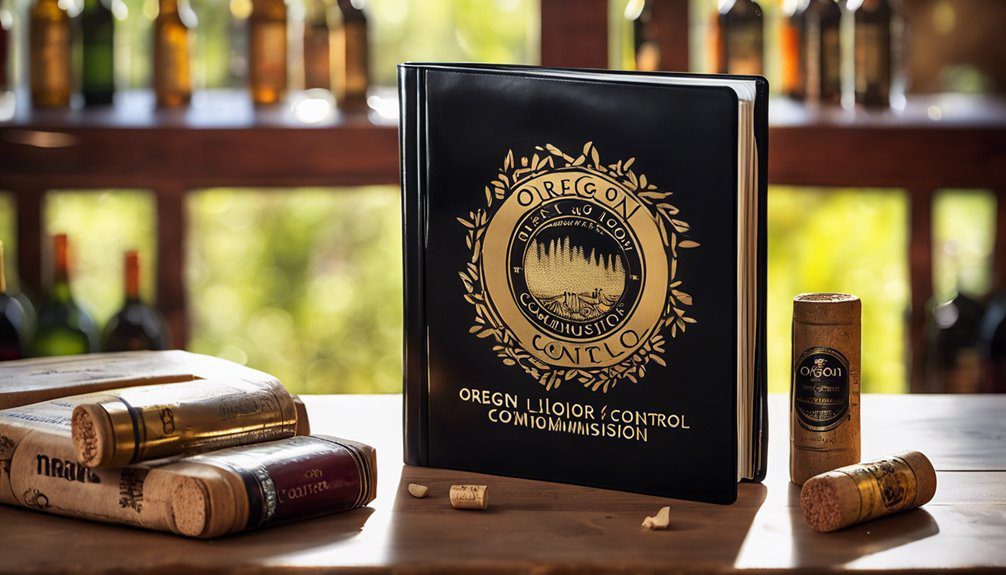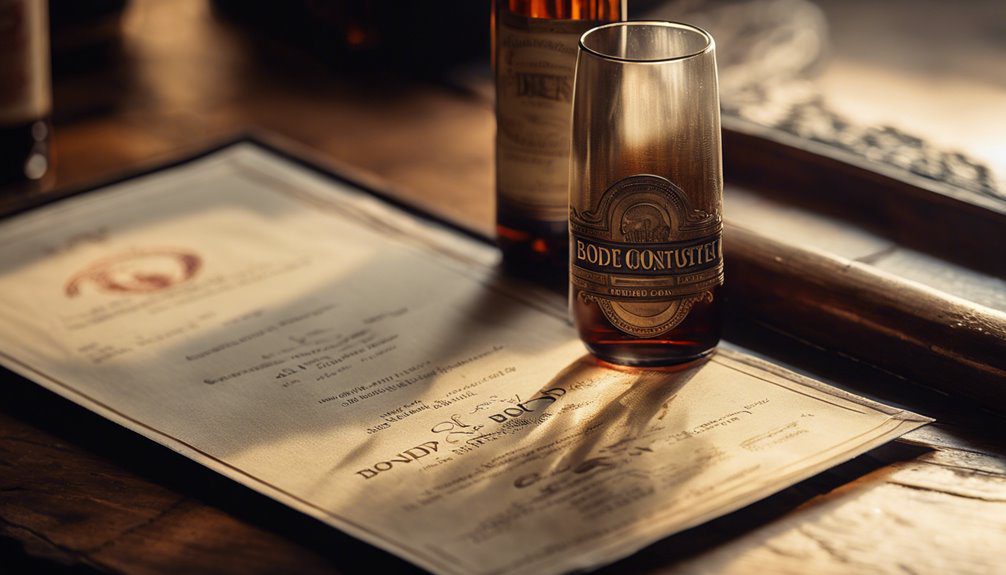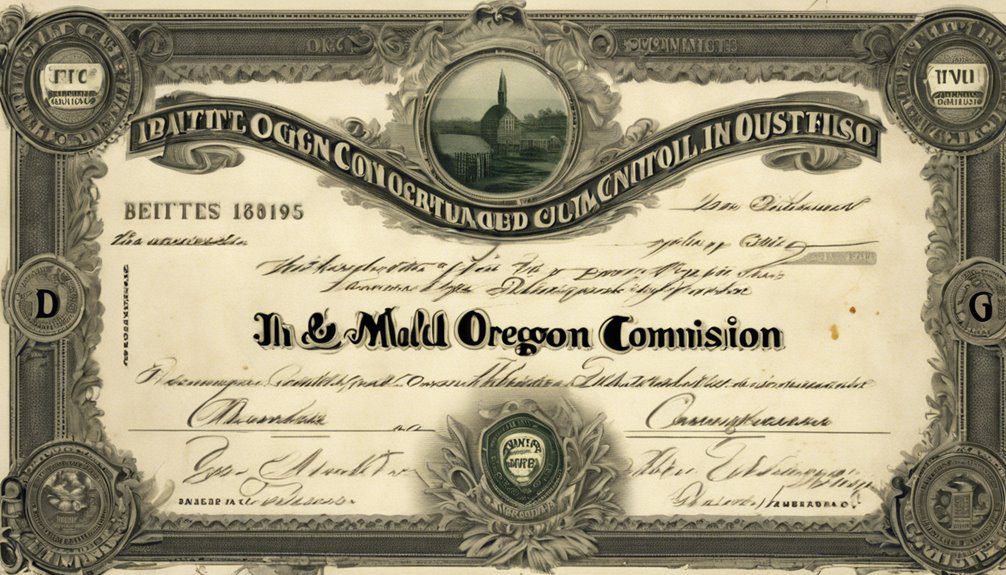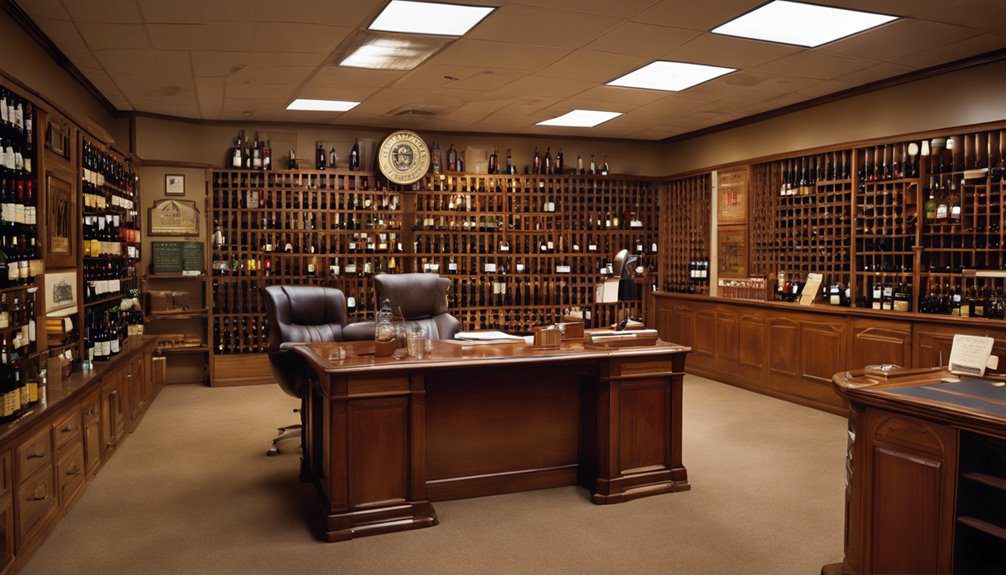When you're navigating the complexities of the Oregon Liquor Control Commission Licensee Bond for Wholesale Malt Beverage and Wine, it's essential to understand its significance in your business operations. This bond not only safeguards your interests but also reinforces your commitment to compliance with state regulations. You might wonder about the specific eligibility requirements and the application process that come with securing this bond. As you consider your next steps, the implications of non-compliance could reshape your approach in ways you hadn't anticipated. What's the next move for your business?
Overview of the Licensee Bond

When it comes to operating a business that sells alcohol in Oregon, understanding the licensee bond is crucial for compliance and financial security. This bond serves as a form of insurance that protects the state and consumers in case you fail to adhere to local laws or regulations.
Essentially, it guarantees that you'll fulfill your obligations as a licensee, covering potential losses incurred due to your actions or negligence.
In Oregon, the licensee bond is required for various types of alcohol-related businesses, including wholesale malt beverage and wine distributors. The bond amount varies based on the specific license type, but it's typically set at a level that reflects the potential risk involved in your operations.
By securing this bond, you're demonstrating your commitment to ethical business practices and compliance with state laws. The application process for obtaining the bond involves gathering necessary documentation and undergoing a credit check to determine premium rates.
You'll need to work with a surety company to obtain the bond, which will assess your creditworthiness and business history. Once you've met the requirements and secured the bond, you can confidently operate your alcohol-selling business, knowing you're protected against potential liabilities and safeguarding your reputation in the industry.
Importance of the Bond
Understanding the importance of the licensee bond is essential for anyone in the alcohol business in Oregon. This bond acts as a financial safety net, ensuring that you comply with state regulations and fulfill your obligations as a licensee. If you fail to meet these obligations, the bond provides a way for affected parties to recover their losses.
Having this bond not only protects consumers but also enhances your credibility within the industry. It shows that you're serious about operating responsibly and adhering to the law. Moreover, it can help you avoid hefty fines or legal troubles, which can arise from non-compliance.
Additionally, the bond can serve as a buffer against unforeseen circumstances, such as disputes over payment or product quality. By having this financial assurance, you can focus on growing your business instead of worrying about potential liabilities.
In essence, the licensee bond is more than just a requirement; it's a crucial part of your business strategy. It safeguards your interests and fosters a trustworthy relationship with customers and suppliers alike. Furthermore, obtaining a contractor license bond can be a vital step in ensuring compliance with industry regulations.
Eligibility Requirements

To obtain a licensee bond in Oregon, you must meet specific eligibility requirements set by the Oregon Liquor Control Commission (OLCC).
First, you need to be a licensed wholesaler of malt beverages or wine in Oregon. This means you must have the necessary permits and comply with all state regulations governing the sale of alcoholic beverages.
Additionally, you must demonstrate financial responsibility. This usually involves providing proof of a stable financial background and the ability to repay any claims made against the bond.
The OLCC also requires that you have no unresolved violations or outstanding fines related to your liquor license. If you've previously had a license suspended or revoked, that could impact your eligibility.
You'll also need to provide personal information, including your legal name, business name, and address, along with any other relevant details that the OLCC may request.
If you're a business entity, you may need to present documentation proving your business structure.
Application Process
Navigating the application process for a licensee bond with the Oregon Liquor Control Commission (OLCC) is straightforward if you follow the required steps.
First, you'll need to gather all necessary documents, including your completed OLCC application, proof of business registration, and any relevant financial statements.
Once you've prepared these documents, you can submit your application online through the OLCC's website. Make sure to double-check that all information is accurate, as discrepancies can delay the process.
After submission, you'll typically receive a confirmation email, which will outline the next steps.
Next, you'll need to secure the bond through a surety company. It's essential to choose a reputable provider, as they'll help you determine the bond amount based on your business needs.
After obtaining the bond, submit the bond certificate to the OLCC.
Bond Amounts and Limits

After securing your licensee bond, you'll need to be aware of the specific bond amounts and limits set by the Oregon Liquor Control Commission (OLCC).
For wholesale malt beverage and wine dealers, the required bond amount typically ranges from $10,000 to $50,000. This amount serves as a financial guarantee that you'll comply with state laws and regulations governing the sale of alcoholic beverages.
It's crucial to note that the OLCC may adjust these amounts based on various factors, including your business's size, sales volume, and compliance history.
If you're considered a higher-risk applicant, the OLCC might impose a larger bond requirement to protect consumers and the state.
Always consult the latest OLCC guidelines or a professional surety bond provider to ensure you're meeting the current requirements.
Failure to maintain the proper bond amount can lead to penalties, including the suspension or revocation of your license.
Renewal and Duration
Renewing your licensee bond is essential for maintaining compliance with the Oregon Liquor Control Commission (OLCC). You must keep your bond active to ensure you're legally authorized to operate as a wholesaler of malt beverages and wine.
Typically, bonds have a term of one year, and it's crucial to renew them before they expire to avoid any interruption in your business activities.
To renew your bond, you'll need to submit a renewal application along with any required documentation to the OLCC. Make sure you check the specific renewal dates and requirements, as they can vary.
If you fail to renew your bond on time, you risk losing your license and facing penalties.
Once renewed, your bond will remain in effect for another year, provided you continue to meet all necessary obligations. You should also keep an eye on any changes in regulations that could affect your bond amount or requirements.
Staying proactive about your bond renewal helps you avoid complications and ensures you can operate your business smoothly.
Compliance Obligations

How can you ensure your business remains compliant with the Oregon Liquor Control Commission (OLCC)? Start by familiarizing yourself with the OLCC's rules and regulations governing the sale of malt beverages and wine. This includes understanding licensing requirements, operating hours, and age restrictions.
Make it a priority to stay updated on any changes in legislation that might affect your operations.
Next, implement robust training programs for your staff. Ensure everyone knows the legal age for alcohol sales and how to check IDs properly. Regular training will help reduce mistakes and keep your team informed.
Additionally, maintain accurate records of your inventory, sales, and any incidents that occur on your premises. These records not only help you track compliance but also serve as documentation should you face any inquiries from the OLCC.
Lastly, conduct regular self-audits to review your compliance status. This proactive step can identify potential issues before they escalate.
Consequences of Non-Compliance
Non-compliance with the Oregon Liquor Control Commission (OLCC) regulations can lead to serious repercussions for your business. If you fail to adhere to the rules, you risk facing hefty fines that can significantly impact your financial standing. These fines aren't just minor inconveniences; they can accumulate quickly, especially if violations persist.
In addition to financial penalties, your liquor license may be suspended or revoked, which directly affects your ability to operate. Losing your license not only halts sales but can also tarnish your reputation in the industry. Rebuilding trust with customers and suppliers after such a setback can be a long and arduous process.
Moreover, non-compliance may lead to legal action against you or your business, resulting in further financial strain and potential criminal charges. Your employees could also be affected, facing job insecurity if the business suffers from the fallout.
To sum it up, ignoring OLCC regulations can have dire consequences, including fines, loss of your liquor license, legal troubles, and damage to your business reputation. Staying compliant is essential for the longevity and success of your operation.
Tips for Licensees

Navigating the complexities of the Oregon Liquor Control Commission (OLCC) regulations can be daunting, but you can take proactive steps to ensure compliance and protect your business.
Start by familiarizing yourself with the OLCC's rules and requirements. Keep an organized record of your licenses, permits, and compliance documentation.
Regularly review your operational practices to ensure they align with the latest regulations. Conduct training sessions for your staff to make sure everyone understands the laws surrounding alcohol sales.
Create a culture of compliance in your workplace; make it clear that following regulations isn't just a requirement but a commitment to your customers and community.
Consider joining industry associations or forums where you can network with other licensees. Sharing experiences and insights can be invaluable.
Keep an eye on any regulatory updates from the OLCC, as laws can change. Finally, don't hesitate to seek legal advice or consult compliance experts if you have questions or uncertainties.
Resources for Further Information
Staying informed about the Oregon Liquor Control Commission's regulations is vital for maintaining compliance and ensuring your business runs smoothly. To help you navigate the complexities of licensing and bonding, several resources are available.
First, visit the Oregon Liquor Control Commission's official website. It hosts a wealth of information, including updated rules, application forms, and FAQs. You can access guidance documents tailored specifically for wholesale malt beverage and wine licensees.
Additionally, consider joining industry associations like the Oregon Restaurant and Lodging Association (ORLA) or the Oregon Winegrowers Association. These organizations offer valuable networking opportunities and resources that can keep you updated on legislative changes and best practices.
Don't underestimate the value of local workshops and seminars. They provide a platform for you to learn directly from experts, ask questions, and share experiences with fellow licensees.
Lastly, consult with a legal expert specializing in liquor laws. They can provide personalized advice and ensure you fully understand your obligations.
Utilizing these resources won't only keep you compliant but also position your business for success in Oregon's competitive market.
Conclusion
In conclusion, securing the Oregon Liquor Control Commission Licensee Bond is essential for your business in the wholesale malt beverage and wine sector. It not only protects consumers and the state but also reinforces your commitment to compliance and ethical practices. By understanding the bond's requirements and obligations, you can safeguard your operations and reputation. Stay informed and take proactive steps to ensure you meet all necessary regulations, helping your business thrive in a competitive market.


